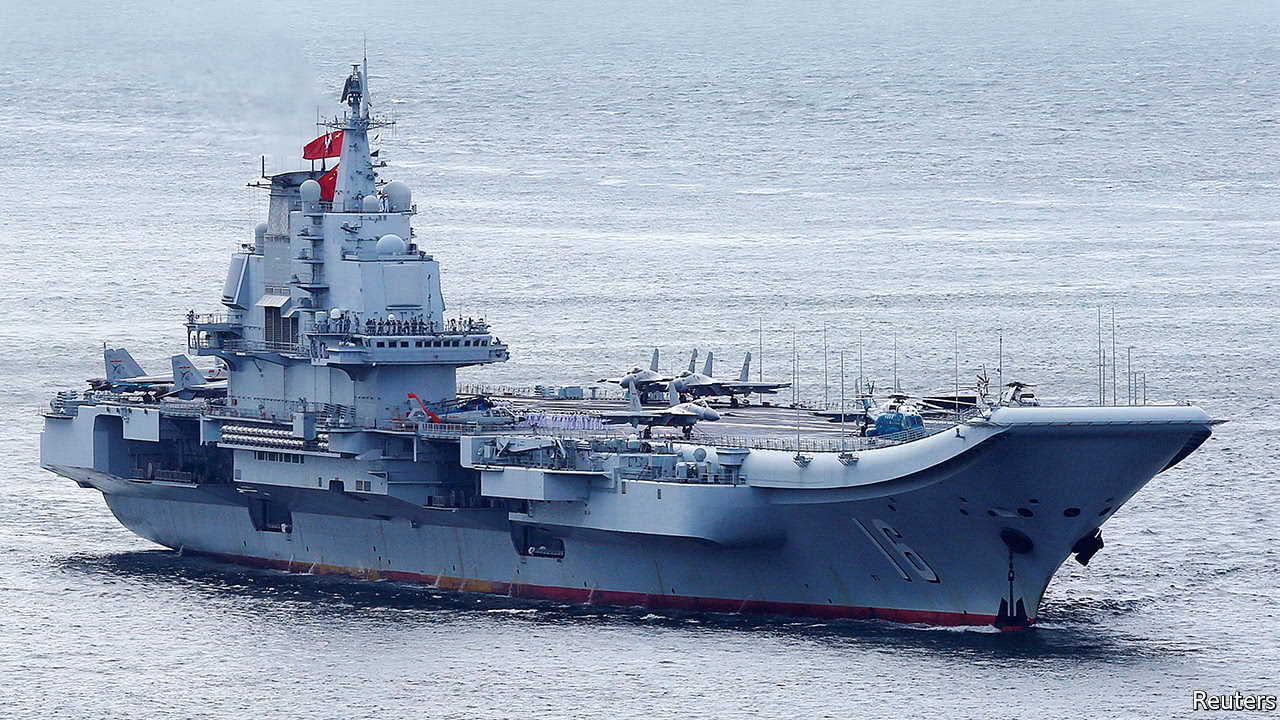In fact, America’s navy should co-operate more with China’s, too
RARELY in times of peace has a country acquired naval power at such a rate as China has in recent years. Three decades ago its warships were clapped out, capable of operating only close to shore. Now its shipyards are churning out state-of-the-art combat vessels at a furious pace. Some experts believe it could have as many warships as America within a few years. China’s navy is also developing global range: this week three of its ships have been staging war games in the Baltic Sea with the Russian navy, the first joint exercises by the two countries in those waters. The intended message to the West is clear. China and Russia, united in their resentment of American power, are thumbing their noses at NATO on its doorstep.
China’s naval build-up worries American officials. Hardly a week goes by without some new development that troubles them. In April the country launched its first domestically built aircraft-carrier, and then in June its first 10,000-tonne destroyer—similar in size to the ones America deploys in the region. This month Chinese ships filled with troops sailed for Djibouti to set up the country’s first overseas military base. China’s naval build-up is giving it the wherewithal to seize and hold disputed territory to which it lays claim in the East and South China Seas, and to threaten Taiwan. In the event of a conflict, America could be drawn in. This week’s exercises with Russia in the Baltic, meanwhile, suggest not only a shared enmity towards the West but also mutual admiration of each other’s thuggish political systems. President Xi Jinping has turned a blind eye to Russia’s land-grab in Ukraine, and President Vladimir Putin to China’s in the South China Sea.
Yet there is far less to the Russia-China relationship than meets the eye (see article). Russian officials worry about China’s growing economic and military might almost as much as their American counterparts do. Russia sells China a lot of weapons, but sells similar stuff to India, China’s rival. True, Mr Xi ignores the West’s sanctions on Russia—but that is mainly because he wants a stable relationship with a huge neighbour which China has come close to fighting in living memory.
Exercising responsibility
As for China’s naval muscle-flexing in the Baltic, that is a development that should, in several respects, be welcomed rather than feared. If China wants to show that its warships can operate in distant seas, there is nothing wrong with that. Indeed, it is entirely right that China, as a global economic power, should play a larger part in providing the maritime security on which global trade depends. It is already taking part in anti-piracy operations in the Gulf of Aden—something for which its base in Djibouti will play a useful supporting role.
Deploying its navy far beyond its own waters might also help China understand that America, too, has good reasons for doing so. China frequently huffs about American warships in the western Pacific, refusing to accept one of the Pentagon’s main reasons for deploying there: that America has a vital stake in the security of Asian trade.
Rather than fretting about joint exercises like those taking place this week, America should encourage China to participate in more of them, including the biennial multi-country RIMPAC manoeuvres, to be held off Hawaii next year. In May the Pentagon invited China to join in, for what would be the third time. Some American politicians grumble about the involvement of a navy so unfriendly to the West. But they are wrong to do so. Such exercises are an important way to prevent confrontation triggered by misunderstanding. And China’s inclusion would help ensure that its increasing naval assertiveness bolsters global security, rather than threatens it.

No comments:
Post a Comment